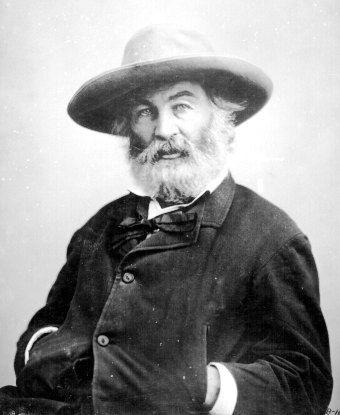Last updated: February 20, 2025
Person
Walt Whitman

Library of Congress's Prints and Photographs Division
A 19th-century poet, essayist and journalist, Walt Whitman stands as one of the most influential poets in American literature, and one of the first to gain international recognition. Whitman spent most of his early years in Brooklyn, where he worked as a printer and newspaper journalist through the 1850s.
The first edition of his landmark collection of poetry, Leaves of Grass, was privately printed in 1855 and consisted of 12 untitled poems, one of which was to later become famous as "Song of Myself." His literary style was experimental, a free-verse avalanche in celebration of nature and self that has since been described as the first expression of a distinctly American voice. Attracted to other men, Whitman's writings include allusions to affection between men. Although Leaves of Grass did not sell well at first, it became popular in literary circles in Europe and, later, the United States, and Whitman published a total of eight editions during his lifetime.
During the Civil War, Whitman moved to Washington, D.C., where he served as a volunteer nurse, and clerk in the Army Paymaster's Office and later, the Department of the Interior. There he published the poetry collections Drum Taps, which was based upon his war-time experiences. Sequel to Drum Taps, also published in 1865, contained his famous elegies for Abraham Lincoln, "Where Lilacs Last in the Dooryard Bloom'd" and "O Captain! My Captain!" In 1873, he was paralyzed after a stroke and moved to Camden, New Jersey. Whitman's prose descriptions of the Civil War, Specimen Days & Collect, were published in 1882. By the time of his death he was an international literary celebrity.
